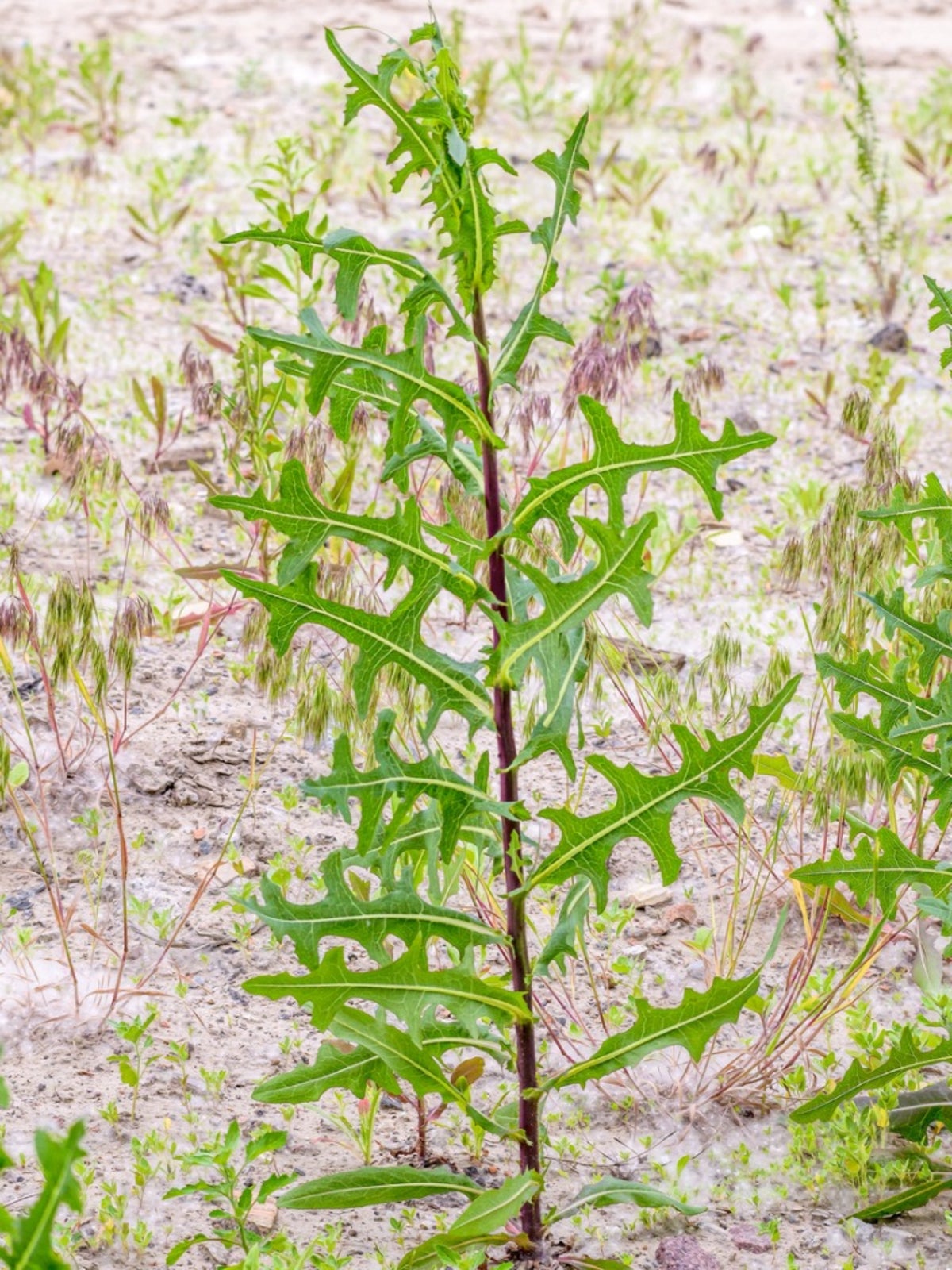Wild Lettuce Weeds: Tips For Controlling Prickly Lettuce
Wild lettuce weeds are unrelated to lettuce. So what is wild lettuce and how can you get rid of wild prickly lettuce?

So what is wild lettuce and how can you get rid of wild prickly lettuce? Amongst the multitude of weed varities invading a garden, we often find wild lettuce weeds. Unrelated to lettuce, this plant is most certainly a weed, and controlling prickly lettuce in the landscape is more often a priority of the gardener. So what is wild lettuce and how can you get rid of wild prickly lettuce?
What is Wild Lettuce?
Wild lettuce weeds are native to the Mediterranean and are also referred to as prickly lettuce, China lettuce, horse or milk thistle and wild opium. It's also called compass plant in relation to the north-south vertical placement of its leaves - perpendicular to direct sunlight.
Wild lettuce, Lactuca serriola, is a biennial, sometimes an annual plant that prefers dry conditions but can be found in moist areas as well. The weed has a deep tap root that exudes a milky sap or latex that is known to clog farming equipment on commercial farms and may also sicken cattle.
This weed is sometimes confused with dandelion in its rosette phase, or for sow thistles at any stage of growth. All of these are members of the sunflower family, have a milky latex sap, and produce lots of viable wind-dispersed seeds.
Prickly lettuce weed is from 1-5 feet tall with alternating leaves that clasp the stem. Its leaves are deeply notched with spiny margins along the mid-vein of the lower surface at maturity. The blossoms are yellow and about 1/3 inch (8.4 mm) across, blooming in late spring to early summer. A single plant can produce anywhere from 35 to 2,300 flowers, each containing around 20 seeds and adding up to a total of between 700 and 46,000 seeds per plant!
Like dandelions, seeds of wild lettuce travel on air currents with the aid of downy, white plumes and are immediately viable or can survive 1 to 3 years in the soil. The weed is most likely found in nurseries, orchards, along roadsides and among crops throughout the United States.
How to Get Rid of Wild Prickly Lettuce
Like pretty much all weeds, wild lettuce can be not only prolific but invasive. In commercial enterprises, prickly lettuce blossoms are difficult to remove from the grain and the latex sap not only gums ups farming equipment, but also inflates the moisture content of the grain. As such, most gardeners wonder about controlling prickly lettuce.
Gardening tips, videos, info and more delivered right to your inbox!
Sign up for the Gardening Know How newsletter today and receive a free copy of our e-book "How to Grow Delicious Tomatoes".
Wild lettuce control for the home gardener with small invasions of the weed requires good old-fashioned hand pulling. Pull wild lettuce when the soil is damp and dig down to get all of the tap roots.
Just as with dandelions, mowing over wild lettuce is not a long-term control; the plant will just produce new stems and flowers. For large infestations and out on the farm, sheep and goats can effectively reduce the wild lettuce population.
Of the organic herbicide options, those that contain clove oil (eugenol) give the best results for wild lettuce control.

Amy Grant has been gardening for 30 years and writing for 15. A professional chef and caterer, Amy's area of expertise is culinary gardening.
-
 Looking For Plants To Give You The Soft And Fuzzies? Try These 5 Fuzzy Leaf Plant Options
Looking For Plants To Give You The Soft And Fuzzies? Try These 5 Fuzzy Leaf Plant OptionsLovers of texture, drama, silver foliage and tactile plants will adore these special sensory garden additions. These fuzzy leaf plant options will leave you all aglow
By Susan Albert
-
 Get Ready For A Summer Of Hummers! Grow These Full Sun Hummingbird Plants and Flowers
Get Ready For A Summer Of Hummers! Grow These Full Sun Hummingbird Plants and FlowersIf you’re lucky enough to enjoy a sunny backyard, make sure you are maxing out on your pollinator opportunities and grow these full sun hummingbird plants and flowers
By Tonya Barnett